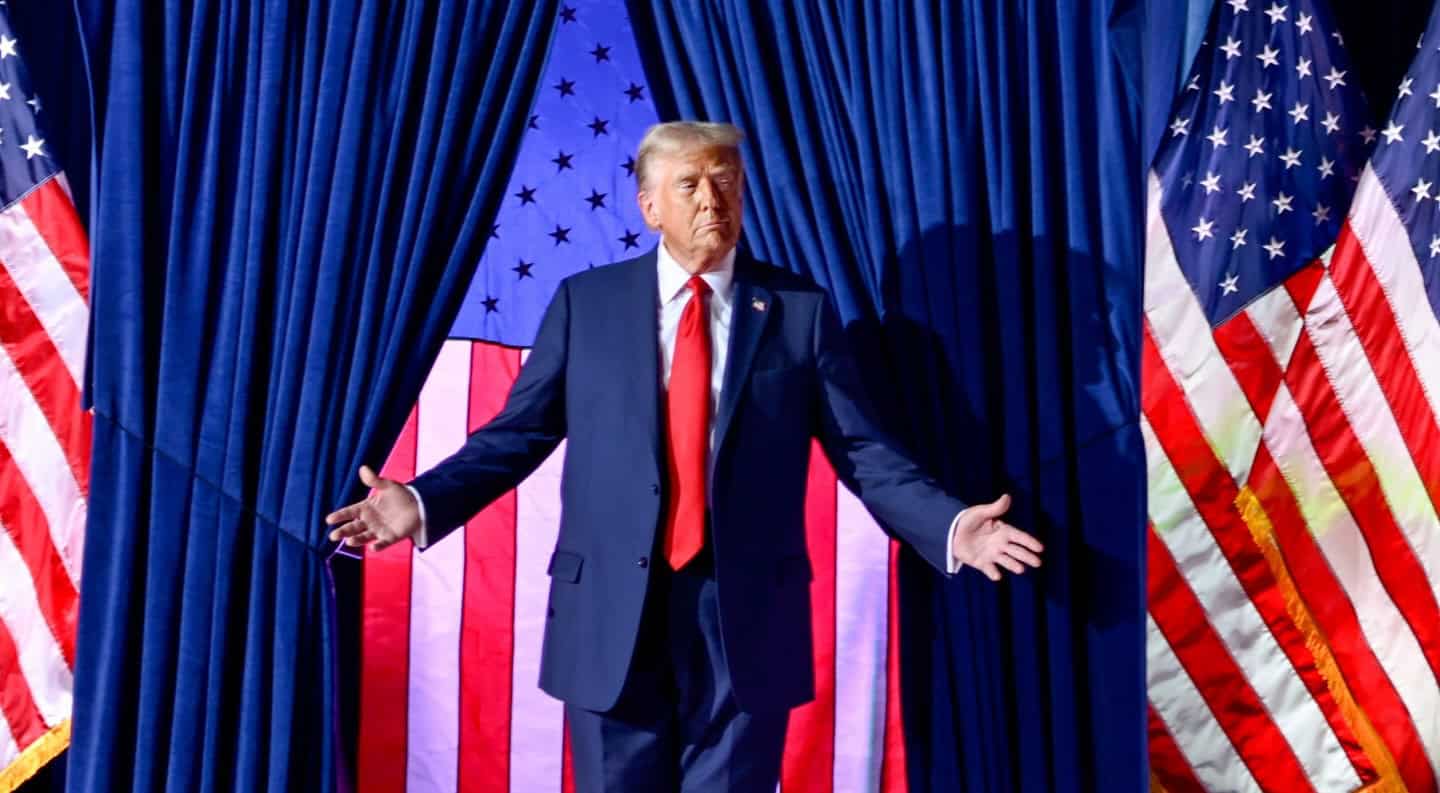The 51st State Controversy: Trump's Words And Their Impact On Canada

Table of Contents
Trump's Statements and their Context
During his presidency, Donald Trump made several statements that alluded to the possibility of Canada becoming the 51st state. While never explicitly stating a policy to annex Canada, his comments often fueled speculation and raised concerns in Canada. These remarks were often made within the context of trade negotiations and political rallies, adding layers of complexity to their interpretation.
- Specific quotes from Trump regarding Canada: While pinpointing exact quotes directly advocating for annexation is difficult, Trump frequently employed rhetoric questioning the fairness of the US-Canada trade relationship, sometimes implying a stronger US position could be achieved through different means. These comments, though not explicitly mentioning the "51st state," created an environment where such speculation thrived.
- Contextual events surrounding these statements: Many of Trump's comments came during tense negotiations surrounding NAFTA (later replaced by USMCA). The perceived unfairness of trade deals often fueled his rhetoric, adding an economic dimension to the "51st state" speculation. Political rallies provided further platforms for these comments, often amplified by his supporters.
- Analysis of Trump's rhetoric – was it serious or rhetorical?: The intention behind Trump's statements remains a matter of debate. Some interpret them as serious policy considerations, reflecting a transactional view of international relations. Others view them as rhetorical devices aimed at leveraging negotiation power or appealing to a specific segment of his base. The ambiguity itself contributed significantly to the controversy.
Canada's Response to the "51st State" Idea
The Canadian government and its citizens reacted to Trump's statements with a mixture of amusement, concern, and outright rejection. The idea of annexation was largely seen as an affront to Canadian sovereignty and national identity.
- Statements from Prime Ministers and other Canadian leaders: Prime Ministers Justin Trudeau and his predecessors consistently rejected the notion of annexation, emphasizing the strong Canadian identity and the importance of maintaining an independent nation. Other Canadian leaders echoed this sentiment, reaffirming Canada's commitment to its own sovereignty.
- Public opinion polls on the subject: Public opinion polls in Canada consistently showed overwhelming opposition to the idea of becoming the 51st state. Canadians overwhelmingly valued their independence and saw the suggestion as a threat to their national identity.
- Media coverage and public discourse in Canada: Canadian media extensively covered Trump's statements, fueling public debate and solidifying the rejection of the "51st state" idea. The controversy became a rallying point for Canadian nationalism and a testament to the strength of Canadian identity.
Impact on US-Canada Relations
Trump's statements, regardless of their intended meaning, had a tangible impact on US-Canada relations. The controversy strained the usually strong bilateral ties, casting a shadow over various aspects of cooperation.
- Changes in trade negotiations (e.g., NAFTA/USMCA): The already tense negotiations surrounding NAFTA were further complicated by Trump's comments. The uncertainty introduced by the "51st state" discussion added an unpredictable element to an already complex process.
- Impacts on border security and cross-border issues: While there were no significant immediate changes in border security, the underlying tension created by the controversy had the potential to impact cooperation on cross-border issues.
- Shifts in diplomatic ties and overall trust: Trump's remarks undeniably eroded trust and damaged the diplomatic relationship between the two countries. The uncertainty created by his rhetoric made it harder to maintain the smooth cooperation usually seen between the two neighbors.
Long-Term Implications and Future Outlook
The "51st state Canada" controversy left a lasting mark on the perception of the US-Canada relationship. While the immediate threat of annexation has diminished, the incident highlighted underlying vulnerabilities and complexities in the bilateral relationship.
- Potential for renewed discussions under future administrations: While unlikely, the possibility of similar rhetoric from future US administrations cannot be entirely discounted. The controversy serves as a reminder of the need for ongoing dialogue and engagement to maintain a strong and stable relationship.
- The enduring impact on public perception and national identity in both countries: The controversy strengthened Canadian national identity and fostered a deeper awareness of the importance of sovereignty. In the US, it highlighted the diversity of opinions regarding international relations and the complexities of US-Canada relations.
- The role of the "51st state" idea in shaping future bilateral relations: The controversy serves as a cautionary tale, underscoring the importance of careful rhetoric and respectful dialogue in maintaining healthy bilateral relations between close neighbours.
Conclusion:
Donald Trump's repeated allusions to Canada as a potential 51st state, while often dismissed as rhetoric, significantly impacted the US-Canada relationship. This controversy highlighted pre-existing tensions and vulnerabilities in the bilateral relationship, particularly in areas of trade and diplomacy. While the immediate threat of annexation may have subsided, the lingering effects of these provocative statements continue to shape the political discourse and necessitate ongoing attention to the complex dynamics between these two North American neighbours. To further understand the complexities and long-term impacts of this controversial idea, continue researching the "51st state Canada" debate and its implications for future relations. Understanding the nuances of the "51st state" debate is crucial for navigating the future of US-Canada relations.

Featured Posts
-
 President Trumps Speech To Congress Key Takeaways And Analysis
Apr 30, 2025
President Trumps Speech To Congress Key Takeaways And Analysis
Apr 30, 2025 -
 9 Ways Target Starbucks Differ From Standalone Stores
Apr 30, 2025
9 Ways Target Starbucks Differ From Standalone Stores
Apr 30, 2025 -
 Blue Ivys Brows Tina Knowles Reveals Her Simple Technique
Apr 30, 2025
Blue Ivys Brows Tina Knowles Reveals Her Simple Technique
Apr 30, 2025 -
 Carnival Cruise Lines 7 Big Announcements For Next Month
Apr 30, 2025
Carnival Cruise Lines 7 Big Announcements For Next Month
Apr 30, 2025 -
 Quick Facts About Wayne Gretzky A Concise Biography
Apr 30, 2025
Quick Facts About Wayne Gretzky A Concise Biography
Apr 30, 2025
